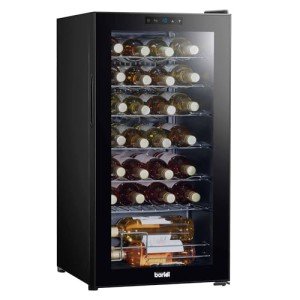Why Adding A Fridges To Your Life Will Make All The Change
The Comprehensive Guide to Refrigerators: Types, Features, and Maintenance
Fridges, commonly described as fridges, play an essential role in modern-day homes by preserving food, reducing waste, and preserving a comfortable living environment. These important kitchen devices have actually developed substantially over the years in terms of innovation, effectiveness, and design. This post intends to offer a thorough overview of the numerous kinds of fridges, their features, and tips for maintenance, making it a vital resource for property owners.
Kinds of Refrigerators
Fridges come in numerous designs and setups, each dealing with different needs and choices. Below is an overview of the most common kinds of refrigerators readily available on the market today.
Kind of Refrigerator
Description
Top-Freezer
This is the traditional fridge design where the freezer compartment is located on top. It is generally the most affordable alternative, making it popular for budget-conscious consumers.
Bottom-Freezer
In this style, the freezer is positioned at the bottom, permitting easy access to fresh items at eye level. This type typically features pull-out drawers for easier organization.
Side-by-Side
This design has the freezer and refrigerator compartments organized vertically beside each other. It provides simple access to both areas and typically includes water and ice dispensers.
French Door
Integrating the benefits of a bottom-freezer style with broad doors on the refrigerator area, French door fridges offer adequate area and versatility, making them ideal for large households.
Compact
Likewise understood as mini-fridges, these smaller sized systems are perfect for dormitory rooms, offices, or as secondary fridges in homes. They have actually restricted storage however are energy-efficient.
Smart Refrigerators
Geared up with smart innovation, these fridges provide features such as touch screens, web connection, and app controls. They can offer alerts for expired food and other wise performances.
Key Features to Consider
When picking a refrigerator, it is vital to think about different features that can enhance use and effectiveness. Here are some essential features to look for:
Energy Efficiency
- Try to find models with an Energy Star ranking to ensure energy performance and minimized energy bills.
Storage Options
- Adjustable racks, door bins, and specific compartments for vegetables and fruits improve the versatility of storage.
Water and Ice Dispensers
- Numerous side-by-side and French door designs feature integrated water and ice dispensers, supplying benefit and encouraging hydration.
Temperature level Control
- Precise temperature level control allows homeowners to set optimum conditions for various food items.
Smart Features
- Features like touchscreen interfaces, Wi-Fi connectivity, and built-in cams to help manage grocery stocks make clever fridges attractive.
Sound Levels
- Consider designs with low functional sound, particularly if the cooking area is open to the living location.
Upkeep Tips for Refrigerators
Correct upkeep can prolong the life of a refrigerator and make sure ideal efficiency. Here are some beneficial upkeep tips:
Regular Cleaning:
- Clean the exterior and interior surface areas of the fridge with mild soap and water at least as soon as a month.
- Remove spills instantly to avoid smells and germs growth.
Temperature Settings:
- Maintain your refrigerator at a temperature in between 35 ° F to 38 ° F and the freezer at 0 ° F for optimal food conservation.
Examine Door Seals:
- Inspect the door seals periodically for fractures or tears. A faulty seal can result in energy loss and increased electrical power expenses.
Defrost Regularly:
- For manual defrost models, defrost the freezer when ice develops up to minimize the appliance's workload.
Condenser Coils:
- Clean the condenser coils at the back or below the refrigerator every six months to improve performance.
Keep it Level:
- Ensure the refrigerator is level for correct door alignment and to avoid vibrations.
Regularly Asked Questions (FAQs)
1. The length of time should a refrigerator last?Typically, a refrigerator can last anywhere from 10 to 20 years, depending on the brand and upkeep practices.
2. How can I enhance the energy performance of my refrigerator?To enhance energy effectiveness, keep the fridge's temperature settings optimal, regularly clean the condenser coils, and avoid putting hot food within.
3. What kind of refrigerator is best for small kitchens?Compact or counter-depth designs are perfect for little kitchens as they offer ample storage without occupying excessive area.
4. Are Thelma Majeske ?Smart refrigerators can be worth the investment if you value convenience and innovation. They offer performances like stock management and remote gain access to, which deal with tech-savvy users.
5. How can I fix a refrigerator that is not cooling properly?Start by inspecting the temperature level settings, making sure the condenser coils are tidy, and validating that the door seals are undamaged. If these do not fix the issue, consider calling a professional service technician.
In conclusion, refrigerators are indispensable devices that play a vital role in preserving food and preserving a healthy lifestyle. With a variety of types and features offered, it is important for customers to select a model that aligns with their particular requirements. By understanding the alternatives and sticking to upkeep best practices, property owners can take pleasure in the benefits of their fridges for several years to come.
